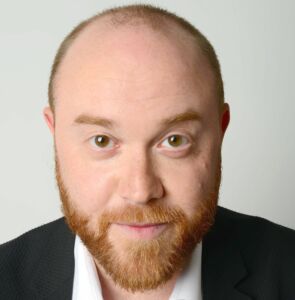Opinion
More Attention Required
Mackindergarten
This article is more than 2 years old.
“As parents, we’d both noticed he found certain basic tasks challenging for some years.” Adrian Mackinder shares his son’s journey to ADD diagnosis in Denmark.

Photo: Adrian Mackinder
After six months of continual, thorough assessment, my seven-year-old son has been diagnosed with attention deficit disorder, or ADD. Not ADHD – there’s no hyperactive behaviour; he doesn’t spontaneously run into traffic – but he has great trouble processing basic tasks, paying attention at school and staying focused on just about anything other than Minecraft or Roblox.
This is difficult for me to write. Not emotionally, but quite literally. Two days ago I accidentally sliced the tip off my right index finger while peeling a pumpkin. But I digress. Emotionally I feel ebullient and positive. This diagnosis is a good thing, because now we can find practical, informed steps to help him.
As parents, we’d both noticed he found certain basic tasks challenging for some years. He has always been extremely sensitive. External noise and aural dissonance causes great distress. He has issues with texture and is incredibly selective over what he eats. But we’d dismissed this as him simply being a scatterbrained flibbertigibbet. But when he started school, that’s when it all kicked in.
He couldn’t focus. He struggled with the most basic grasp on letters and numbers. He was exhausted – as in, falling asleep sitting up exhausted. And, as he moved from zero grade to first grade, it just got worse.
He wasn’t thriving socially. He wouldn’t participate in efterskole activities. He had isolated himself from others. He seemed quite content playing alone in this respect, but we could see he wasn’t thriving socially. He also started to tell us that he knew he had trouble because he was just stupid. And that was when we decided to act.
It’s heartbreaking to hear your own child tell you they are stupid. I have no problem if he wants to play alone. If he feels different from the other kids. Some of the most fascinating people you will meet are outsiders who feel no connection with joining the herd. But what I have found incredibly hard is seeing my son lose his confidence and self esteem.
He has all his life to learn to spell and count, but I don’t want him to spend his formative years thinking he is less than others. That there’s something wrong with him. Because there isn’t. Because he is a thoughtful, kind, caring, funny, imaginative and intelligent boy who just needs a little help.
The psychologist who has been working with our family has been amazing. I shudder to think how long we would have taken to get that level of help in the UK. I should add as a caveat that we did get financial help through our health insurance, but the fact Denmark is a wealthy country with great resources and a much smaller population no doubt helped.
She wasn’t quick to casually slap a diagnosis on our son. I was mindful of today’s culture whereby diagnoses seem to be dished out like playing cards and I was relieved this wasn’t the case. The process took six months, with many stages. And we are now in a position to seek the right help to meet his needs.
As an aside, this year my sister was diagnosed with ADHD – in her late thirties. She told me she was relieved but wished she’d had this recognised earlier in her life and had the right help. We are proud to be able to help our boy regain his muchness and are glad we acted when we did.
Now if you excuse me, I have to go and find the rest of my finger.

About
Mackindergarten
Adrian Mackinder is a British author and comedian who married a Dane and moved to Copenhagen in 2015. When not writing about being an Englishman living abroad with two half-Danish kids, you can find him doing stand-up comedy or improv all around the city, wherever there’s a stage.










































